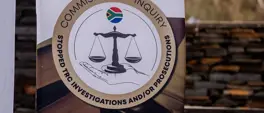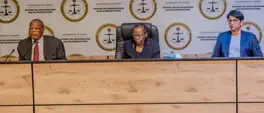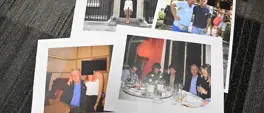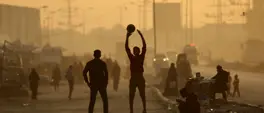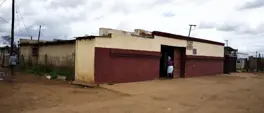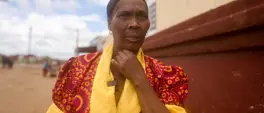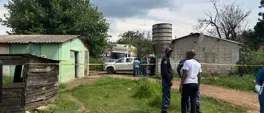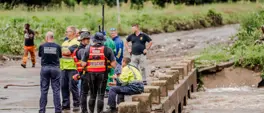ANALYSIS: 'Confused electorate', IEC's legal challenges & political precarity characterise SA ahead of 2024 elections
Vukile Dlwati
2 May 2024 | 9:41With election day less than a month away, Vukile Dlwati looks at the country's state of readiness ahead of the 2024 polls.
JOHANNESBURG – "Elections", "politics", "voting", "IEC", "Electoral Court", and "independent candidate" are some of the inevitable buzzwords in the South African lexicon ahead of the national and provincial polls.
These words have cemented their place in various public spaces, including queues at grocery stores, workspaces, taxi ranks, bus terminals, among others, and, of course, the media.
It's just under a month before South Africa's general elections unfold. And the ambivalence of an electorate with an array of political parties to choose from is somewhat palpable.
This lends itself to new players on the political landscape, including independent candidates, before the seventh Parliament is formed.
Furthermore, eligible voters will each receive three ballot papers - namely the national compensatory (for political parties only), the national regional (contested by political parties and independent candidates in one’s region) and the provincial legislature (contested by political parties and independent candidates in one’s province).
AN ALBATROSS AROUND THE IEC'S NECK
The Independent Electoral Commission of South Africa (IEC), despite its widely recognised track record of credibility and integrity, is burdened with so much more this time around, not only administratively, with the addition of a third ballot paper, but legally too.
At the weekend, it surfaced that Jacob Zuma’s uMkhonto weSizwe (MK) Party is accused of forging supporters’ signatures to qualify for the elections as per the IEC’s requirements.
It’s a requirement for political parties to submit 15,000 signatures, while 1,000 signatures are expected from independent candidates who want to run for public office.
The IEC has since called "on crime investigating authorities to expedite the investigations to establish the verity of the allegations".
However, it has previously noted that it can’t verify signatures that political parties and independent candidates submit.
Moreover, the commission said it could only vet the identity numbers of signatories to confirm that they are alive and registered to vote.
Political analyst, Tessa Dooms, weighs in on the IEC’s legal woes, saying the country is walking a tightrope.
"Firstly, I think that 30 days out from the election, we are sitting in quite a precarious situation. I think that we have heard an unprecedented number of Constitutional Court cases in this election cycle, we've had upwards of 11 separate court cases, from different parties, that have gone to the Electoral Court in a matter of three weeks, this actually doesn't include the MK-ANC multiple lawsuits."
Meanwhile, political analyst, Melanie Verwoerd, says it will be interesting to see how the allegations of signature theft will play out.
"If there's any successful litigation before the election, I'm not 100% sure there's enough time but if there is, that could pose a difficulty for the IEC if they have to suddenly blank out a name, if that, for example, renders MK invalid on the ballot paper and say they can't stand, they would have to blank out the name and put stickers on everything," she said.
"But in terms of litigation after the election, my sense is it's going to depend on how well they did… if they actually do quite well, I think we could see some litigation."
IEC VS ZUMA/MK PARTY
The IEC is also confronted with another formidable court challenge involving the MK Party.
Previously, the IEC set aside Zuma’s candidacy to run for public office owing to his 2021 contempt of court charge and 15-month imposed sentence.
In an about turn, the MK Party approached the Electoral Court to challenge the IEC’s decision and the court would later rule against the IEC.
The tug-of-war was further protracted when the IEC went ahead to appeal the Electoral Court’s decision in the Constitutional Court, and the matter will be heard on 10 May.
The outcome will certainly set a precedent for South Africa’s judiciary. The country can only wait for now.
A 'CONFUSED, OVERWHELMED' ELECTORATE
Dooms posits that "30 days before the election, it doesn't seem clear that everybody is comfortable with who the contestants actually are. But what is also still lingering 30 days before the election is a clear sense and a clear picture of what the temperature and the mood of the electorate is towards the election".
Despite this, she acknowledges that "there is high interest in the election", adding that there’s a likelihood of not getting a sense of voters' feelings.
"Unless we really pay attention to it because voters' voices are often lost but I think it's going to be really important to have conversations where voters express their anxieties and their concerns."
According to Dooms, some voters are unclear on which party or candidate to elect because "many people still feel confused".
"Many people don't even know who all of the options are, the sense that voters are feeling overwhelmed."
From Verwoerd’s vantage point, "elections are never a nice time, in terms of relationships. It's always the temperatures always go up in the country, amongst political parties. But of course, also my citizens, because political parties working with us racial-driven narratives, whatever works, you know, poverty issues, attacking one another."
She further shares a general societal perception of the current political climate.
"I've heard a lot of people saying, you know, that they are frustrated that, and particularly, opposition parties talk more about what the others are doing wrong, rather than what they will be doing."
POLITICAL TENSIONS AHEAD OF ELECTIONS
The ANC is conspicuously hot under the collar owing to polls suggesting it could be decimated come 29 May.
This is the case for the main opposition, the Democratic Alliance (DA).
This comes amid heightened pressure, a widened political playing field and general politicking during elections.
The ANC has had a sudden peak in the polls last month and Verwoerd says this is not surprising.
"That's when they really thought of pushing or rolling out the whole thing [elections campaign]."
Verwoerd says it remains to be seen "whether the ANC picks up. If the polls show no indication of that, well, then they're going to stick at the 40%, which the polls have been showing for the last few months… their momentum is getting bigger and bigger.
"And whether that's going to be enough is going to be another question, but it doesn't surprise me… this is very much an ANC pattern."
Meanwhile, Dooms says "there seems to be certainty as the polls start to show more and more that the ANC may go under 50%".
"What we are likely to see in the next 30 days, is a ramping up of contestation, ramping up our visibility of political parties, a ramping up of canvassing and campaigning."
Dooms also sees "greater levels and heightened levels of preparedness", referring to the Economic Freedom Fighters (EFF) who have gone as far as setting up call centres for their election campaign.
"They're doing things very differently. Their media presence is wider. They've added so many features to the election machinery, like town halls."
She also noted the ANC’s impetus in "bringing out [Thabo Mbeki while] Kgalema Motlhante is signalled to join the ANC's election machinery soon".
Last week, Mbeki was seen waving the party’s flag during a walkabout in Soweto after having publicly scolded the ANC for its shortcomings as senior member.
It was during his time in Soweto that Mbeki reinforced his membership in the party after skepticism over whether he would campaign for the ANC.
Mbeki’s appearance came shortly after ANC president, Cyril Ramaphosa, could be heard in a leaked recording, expressing dissatisfaction with the party’s impalpable electioneering.
Continued Dooms: "And so, they're definitely trying to bring out as much of the muscle as possible. I mean, another feature that's been interesting about the big political parties is the DA and its new-found anxiety about being contested in the Western Cape and being contested by other parties that are small or emergent or new."
Verwoerd agrees, saying the DA is panicking in its political stronghold.
"I think we can see some panic that has kicked in, and particularly amongst the DA, the way that they've been attacking parties like Rise Mzansi, especially in the Western Cape, there seems to be some anxiety and nervousness," she said, adding that it would "get worse as we get closer to the elections, if they get a sense from the internal polling, and also from the external polling, that there are some real threats".
'ANC FOCUSING ON KZN BECAUSE OF MK PARTY'
Dooms pointed out the ANC’s focused preoccupation with the MK Party, which has not been seen since the days of the Congress of the People (COPE).
The ANC, she explains, has "such a clear target of a party that they need to take down in order to do well in this election".
"They're fiercely and intensely focused on the MK [Party] and I think that they are now having to put themselves against MK, which I think is a distraction from the broader campaign," Dooms shared.
For now, we can only observe what this general election season brings and hope that integrity, fairness and credibility reign supreme ahead of the outcome.
On 1 June 2024, South Africa will know the winner and government for the next five years.
This will be a historic election for South Africa with over 27 million registered voters, an IEC milestone since democracy.
Get the whole picture 💡
Take a look at the topic timeline for all related articles.
Trending News
More in Politics
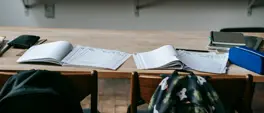
20 December 2025 06:26
SADTU sounds alarm: Rising student violence driving teachers out of the profession
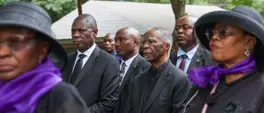
20 December 2025 06:07
‘South Africa is in serious problems’: Thabo Mbeki pays tribute to late advisor Titus Mafolo
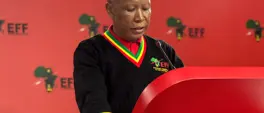
19 December 2025 15:16
EFF condemns US sanctions on ICC judges as a brazen attack on global justice

